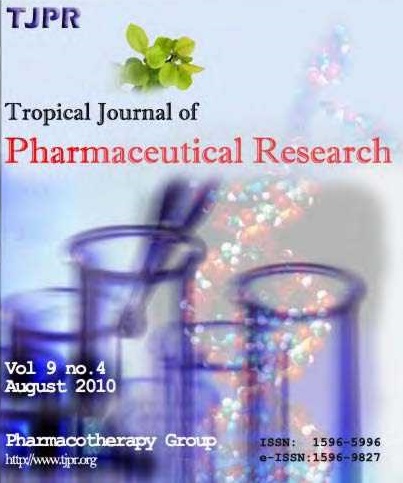Prok1通过Pi3k/Akt/nf-κ B信号通路调控多囊卵巢综合征卵巢颗粒细胞的增殖和凋亡
IF 0.6
4区 医学
Q4 PHARMACOLOGY & PHARMACY
引用次数: 0
摘要
目的:探讨Prok1对PCOS细胞凋亡和增殖变化的调控作用,以及Pi3k/Akt/nf-κ B信号通路在这一过程中的作用。方法:将PCOS大鼠卵巢颗粒细胞培养后分为对照组和si-Prok1组。然后在细胞中分别加入50 μL的对照慢病毒和Prok1 siRNA慢病毒。流式细胞术检测两组细胞周期率和凋亡,免疫印迹法检测Pi3k/Akt信号通路相关蛋白水平。结果:si-Prok1组细胞周期G0/G1期和S期细胞比例显著低于对照组,而G2/M期细胞数量显著高于对照组(p <0.01)。与对照组相比,si-Prok1组细胞周期蛋白A2和cycline1的蛋白表达显著下调,而p21蛋白表达水平显著升高(p <0.05)。si-Prok1组细胞凋亡明显增加。si-Prok1细胞中Bcl-2、cleaved caspase-9和caspase-3蛋白表达水平较对照组显著升高,而si-Prok1组中Bax、p- pi3k和p- akt蛋白表达水平显著低于对照组(p <0.05)。结论:si-Prok1通过调控Pi3k/Akt信号通路,阻滞细胞周期,诱导细胞凋亡变化,抑制卵巢颗粒细胞增殖。因此,它可能在多囊卵巢综合征的治疗中发挥潜在的作用。本文章由计算机程序翻译,如有差异,请以英文原文为准。
Prok1 regulates the proliferation and apoptosis of ovarian granulosa cells in polycystic ovary syndrome via Pi3k/Akt/nf-κ B signaling route
Purpose: To investigate the regulatory influence of Prok1 on apoptotic and proliferative changes in PCOS, and the implication of Pi3k/Akt/nf-κ B signaling pathway in the process.Methods: Ovarian granulosa cells from a rat model of PCOS were assigned to control and si-Prok1 groups, after cell culture. Then, control lentivirus and Prok1 siRNA lentivirus (50 μL each) were added to the cells to the groups, respectively. Cell cycle ratio and apoptosis in the two groups were determined using flow cytometry, while Pi3k/Akt signal route-linked protein levels were assayed by immunoblot method.Results: The proportions of cells at G0/G1 and S phases of the cell cycle in si-Prok1 group were significantly lower than those in the control group, but G2/M phase cell population was significantly higher, relative to the control (p < 0.01). There was significant down-regulation of protein expressions of cyclin A2 and cycline1 in si-Prok1 group, relative to control group, but p21 protein level was significantly higher in si-Prok1 group (p < 0.05). There was a significantly higher apoptosis in si-Prok1 group. In the si-Prok1 cells, there were significant increases in protein levels of Bcl-2, cleaved caspase-9 and caspase-3, relative to control group, while protein expression levels of Bax, p-Pi3k and p-Akt in si-Prok1 group were significantly lower than the corresponding control values (p < 0.05).Conclusion: si-Prok1 arrests cell cycle, induces apoptotic changes, and inhibits the proliferation of ovarian granulosa cells through a mechanism related to the regulation of Pi3k/Akt signaling pathway. Therefore, it might play a potential role in the treatment of polycystic ovary syndrome.
求助全文
通过发布文献求助,成功后即可免费获取论文全文。
去求助
来源期刊
CiteScore
1.00
自引率
33.30%
发文量
490
审稿时长
4-8 weeks
期刊介绍:
We seek to encourage pharmaceutical and allied research of tropical and international relevance and to foster multidisciplinary research and collaboration among scientists, the pharmaceutical industry and the healthcare professionals.
We publish articles in pharmaceutical sciences and related disciplines (including biotechnology, cell and molecular biology, drug utilization including adverse drug events, medical and other life sciences, and related engineering fields). Although primarily devoted to original research papers, we welcome reviews on current topics of special interest and relevance.

 求助内容:
求助内容: 应助结果提醒方式:
应助结果提醒方式:


